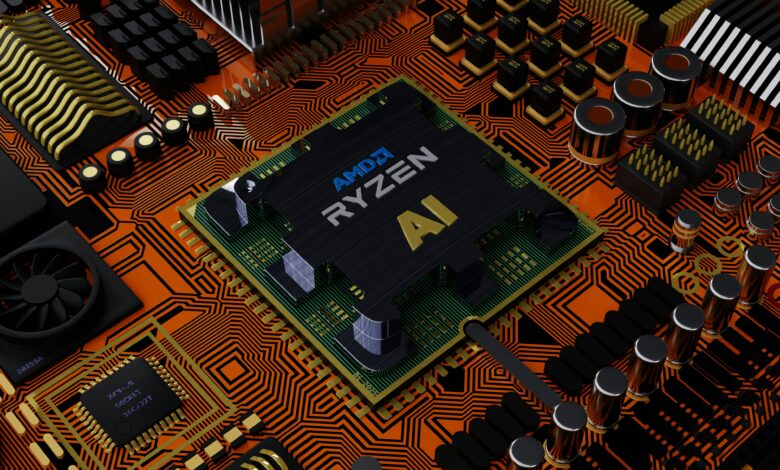
In the ever-evolving landscape of business, computing technologies are at the forefront, driving innovation and efficiency. From automating processes to enhancing decision-making, these advancements are transforming how companies operate. Here are the top 10 computing technologies that are shaping the future of business.
1. Artificial Intelligence and Machine Learning
Artificial Intelligence (AI) and Machine Learning (ML) are revolutionizing industries by enabling machines to learn from data and make intelligent decisions. Businesses are leveraging AI and ML to automate customer service, predict market trends, and optimize operations. For example, AI-powered chatbots provide 24/7 customer support, while ML algorithms analyze vast amounts of data to forecast demand and manage supply chains more effectively.
2. Cloud Computing
Cloud computing has fundamentally changed how businesses store, access, and manage their data. By moving to the cloud, companies can scale their operations without significant upfront investment in IT infrastructure. Cloud services offer flexibility, enabling businesses to quickly adapt to changing demands. Moreover, cloud computing supports remote work, as employees can access essential tools and data from anywhere in the world.
3. Internet of Things (IoT)
The Internet of Things (IoT) connects physical devices to the internet, allowing them to communicate and share data. This technology is transforming industries such as manufacturing, healthcare, and logistics. For instance, in manufacturing, IoT devices monitor equipment performance in real-time, predicting failures and scheduling maintenance to prevent downtime. In healthcare, wearable devices track patient health metrics and send alerts to medical professionals, enhancing patient care.
4. Blockchain
Blockchain technology offers a secure and transparent way to record transactions. Originally developed for cryptocurrencies, blockchain has found applications in various sectors. In supply chain management, blockchain ensures transparency by providing an immutable record of product journeys from origin to consumer. This reduces fraud and increases trust among stakeholders. Financial services use blockchain for faster and more secure transactions, reducing the need for intermediaries.
5. Edge Computing
Edge computing brings data processing closer to the source of data generation, reducing latency and improving speed. This is particularly important for applications requiring real-time processing, such as autonomous vehicles and smart cities. By processing data at the edge, businesses can achieve faster response times and reduce the load on centralized data centers. Edge computing is also enhancing the capabilities of IoT devices by enabling them to make decisions locally.
6. Quantum Computing
Quantum computing is an emerging technology that promises to solve complex problems beyond the capabilities of classical computers. Although still in its infancy, quantum computing has the potential to revolutionize industries such as cryptography, materials science, and drug discovery. Businesses are investing in quantum research to gain a competitive edge, anticipating breakthroughs that could lead to new products and services.
7. Augmented Reality (AR) and Virtual Reality (VR)
AR and VR are transforming how businesses interact with customers and train employees. AR overlays digital information onto the physical world, enhancing user experiences. For example, retail businesses use AR to allow customers to visualize products in their homes before making a purchase. VR creates immersive environments for training and simulations, particularly useful in fields like healthcare and manufacturing. These technologies are improving customer engagement and reducing training costs.
8. Robotic Process Automation (RPA)
Robotic Process Automation (RPA) automates repetitive tasks, freeing up employees to focus on higher-value activities. RPA is being used in various industries to streamline processes such as data entry, invoice processing, and customer support. By automating these tasks, businesses can increase efficiency, reduce errors, and lower operational costs. RPA also enables companies to scale their operations without proportionally increasing their workforce.
9. 5G Technology
The rollout of 5G technology is set to revolutionize connectivity with faster speeds, lower latency, and greater capacity. For businesses, this means improved communication, enhanced IoT capabilities, and the potential for new services. 5G enables real-time data transfer, supporting applications like autonomous vehicles, remote surgeries, and smart cities. Companies that adopt 5G early will benefit from increased productivity and new business opportunities.
10. Cybersecurity
As businesses become more reliant on digital technologies, cybersecurity becomes increasingly critical. Cyber threats are evolving, and companies must stay ahead to protect their data and systems. Advanced cybersecurity measures, such as AI-driven threat detection and blockchain-based security protocols, are essential to safeguard business operations. Investing in robust cybersecurity infrastructure not only protects against data breaches but also builds trust with customers and partners.
Conclusion
The future of business is being shaped by these cutting-edge computing technologies. From AI and cloud computing to IoT and blockchain, each technology offers unique benefits that can drive innovation and efficiency. As businesses continue to integrate these advancements, they will be better positioned to compete in a rapidly changing market. Embracing these technologies not only enhances operational capabilities but also opens up new opportunities for growth and development. The key to success lies in staying informed and agile, ready to adapt to the technological trends that are shaping the future.




